After moving to France, one of the first things you’ll want to do is open a French bank account. You’ll need a French bank account to pay your bills, to easily withdraw cash, and to get paid by your employer, for starters. Sometimes simply opening a bank account in France can seem like a catch-22 with all the requirements: you need proof of address to open your account, but to get an apartment, you need a bank account. And that’s just the beginning. If you’re interested in how to open a French bank account as an American, you’ll want to continue reading. Is it as much of a headache as it seems?
Read on for my experience and tips!
How to open a French bank account as an American
Please keep in mind I’m not a banking professional and am sharing my experience, which may vastly differ from yours. Depending on your banking needs, visa status and personal situation, your experience with opening a bank account in France may not be in line with what I explain below. Always check with your financial institution for the most up to date information and to verify what documents are required.
Before moving to France, I figured that banking would be very similar to what it’s like in the US. A bank is a bank, right? You open an account, you get a debit card, you set up direct deposit. Easy, right? Well, not so fast…
Yes, sure, banking in France is similar enough to banking in the USA, but actually opening a bank account in France as a foreigner was a bit of a shock. It took a while, was not free, and involved a fair amount of paperwork!
Banks in France seem to operate very subjectively. They can tell you they are unable to open an account for you for an assortment of reasons, two of which I experienced firsthand even though I was a legal resident in France and could produce the required paperwork.
The first reason brought me to tears back in 2009 when I came to France to teach English. Tom had just picked me up from the airport and we drove to my new home in the Val D’Oise department outside of Paris to get my French bank account squared away. I had a work contract in hand and had a valid work visa, money to deposit, and spoke intermediate (but not confident) French. I needed to open a French bank account right away because I wouldn’t have been able to get my paycheck unless I had a French bank account. It was of the utmost importance that I open an account immediately.
Except after going through all the paperwork, I was denied.
On what grounds? That I was a foreigner and my French wasn’t good enough at the time.
I pleaded with the branch manager to please give me a chance, that I was jet-lagged, and my French would only improve with time. I had cash in hand and a work contract (not to mention a native French speaker with me)! I told them I’d be no bother (in French) and would only use the ATM.
Tom insisted they process my paperwork. They didn’t care and we left. Defeated. Tired. And in tears. (The story has a happy ending. I managed to open a French bank account at another bank the next day. But wow, what a nice welcome to France, right?)
I couldn’t imagine an American bank denying someone with legal status and a job a bank account because of their English level. It might even be illegal. But France is not the US and this was one instance that reminded me of that in all the wrong ways.
Flash forward a few years and we get to reason-I-was-denied-#2. I didn’t have a paycheck from a French company that would be direct deposited into the account regularly each month. It didn’t matter if I had a decent amount to deposit. Or freelance pay. They didn’t care if they weren’t receiving my salary from a French company monthly. No dice. No account.
Anyway, once I moved to France for good after marrying Tom, things got a whole lot simpler.
Quick note: For simple, no-frills banking, I highly recommend N26, an online bank where you can manage your account from an app on your phone. The free account is bare bones, but if you’re just looking to use the ATM and pay by card (especially when traveling outside of France), it’s a fantastic option. Read more about N26 here.
Also, if you have a need to transfer money between currencies, Transferwise is a no brainer. Fees are incredibly low and everything is managed via a simple app. More here on why everyone living abroad needs to use Transferwise.
That Catch-22
To open a French bank account, you’ll need a physical address but when we first arrive abroad, who has an address? We may be in the process of finding an apartment. To get that apartment, you need a bank account! One of the major problems people run into with opening a French bank account is the lack of a permanent address when they first arrive, so you’re not alone. If you’re wondering how to open a French bank account without proof of address, you have a few options. The good news is that you can use a temporary address when you first open your account and change it easily enough to your permanent address once you’re settled.
In my case, I used the address of my landlord when I lived in her backyard studio. You can use the mailing address of your employer, school, temporary student housing, Airbnb, or even a friend or colleague’s address with an attestation stating you live at that address signed by them with a copy of their photo ID.
So keep in mind there are always workarounds if you don’t have a permanent living situation when you first arrive and you don’t have proof of address. It’s only normal, so go to your bank appointment prepared with what you do have at the time.
How to open a French bank account
To open a French bank account as a foreigner, I had to do three things:
1. Make an appointment
No walk-ins allowed! You’ll have to call or visit the bank in person to request an appointment to open an account in France. Appointments are rarely, if ever, made for the same day, so plan accordingly. It may seem a little old school to have an official appointment for the seemingly simple task of opening a French bank account, but that’s just how it’s done here.
TIP: If you’re looking to open a French bank account as an American, ask them upfront (before you spend an hour in their office) if they’re able to do it. If one bank tells you no, shop around. It can be done! Why is this sometimes tricky? It’s a hassle for French banks to jump through the hoops required to comply with the IRS. Having Americans as clients just adds to their workload and banks have no problem turning Americans away. Sometimes you don’t find this out until after you’ve been in their office for an hour.
2. Get your documents together
More on the required paperwork to open a French bank account below.
3. Show up to the appointment with the required documents.
Easy, right? More or less.
The details on my French bank account:
My legal status in France: Legal permanent resident. I’m an American living in France on a 10-year carte de sejour (married to a Frenchman) which I was required to show.
Bank: Crédit Agricole, Maine-et-Loire (Department 49)
Time spent at bank: 1-hour appointment going over everything and signing paperwork. Debit card arrived at the bank about a week after opening the account and I had to go pick it up.
Costs:
- Annual 49-euro fee for the chipped debit card, but they gave it to me for free for the first year (PIN is set by bank, by the way, you don’t choose the 4-digit code)
- 6.63 euros/month in fees (elective, I say more on this below)
- Highlights: Checks are free, online banking included, ATM withdrawals/deposits are free at my bank, no minimum balance requirements
Documents I was required to bring for opening a bank account in France:
- Passport
- Carte de sejour
- W-9 form
- Proof of residence in France (I brought our electricity bill as proof but any type of bill would work if it’s in your name)
- Last two years of our tax declaration (if you’ve just moved to France but your spouse was there before, bring his/her declaration even if your income doesn’t factor in)
- Optional: Not 100% obligatory but I was told this would help move things along if I could bring any of the following: Proof of owning a home, a work contract, 3 months’ worth of statements from another bank account in my name.
Something I learned, which surprised me, was that it was possible for me to get my debit card and then not incur any additional monthly fees. I would not be protected against overdraft fees if my account dipped below zero, would not have charges immediately reversed in the case of card theft, as well as other protections, but some banks DO offer very low-cost accounts.
It’s not recommended to opt out of these services, though, so I didn’t. Most French people are used to paying a monthly banking fee of some sort so I figured I should get on board. 😉
So was opening a French bank account a hassle?
Not really. I admit I was nervous walking into my local Credit Agricole and asking if they are able to open accounts for Americans. But there was no need to be nervous. They were nothing but kind, scheduled an appointment for me the next week and that was that. Smooth sailing!
On the other hand, I’m paying for more services than I need. I have very simple banking needs in France and I don’t need all the bells and whistles that come with my debit card and account.
Another banking recommendation I have for you is TransferWise. If you are looking to send money abroad or to hold money in various currencies, consider using them. It’s a great tool for sending and receiving money internationally with low fees — much cheaper than using your local bank. Not to mention opening an account is free along with a debit card and there are no monthly fees with TransferWise like there would be with a traditional French account. You can also get your own local bank account details in Europe, UK, US, Australia and New Zealand with the TransferWise Borderless account.
So back to opening a French bank account with the mainstream banks. My biggest piece of advice is to shop around and don’t get discouraged if a bank turns you away. Some are strict and others are not (regardless, you will need proof of identity, address, and legal status at a minimum).
Be friendly and professional. Show up organized with your documents, and hope for the best!
***
How has your experience been with opening a French bank account in France?
Pin me:
This post may contain affiliate links.
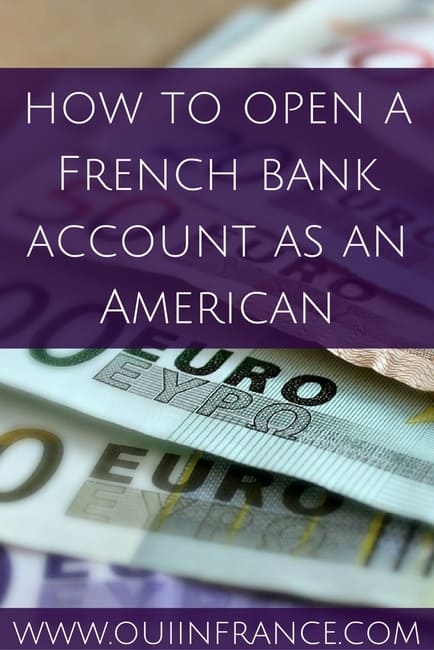
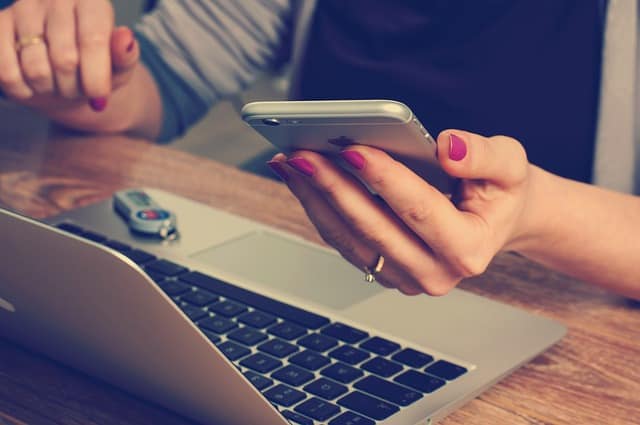
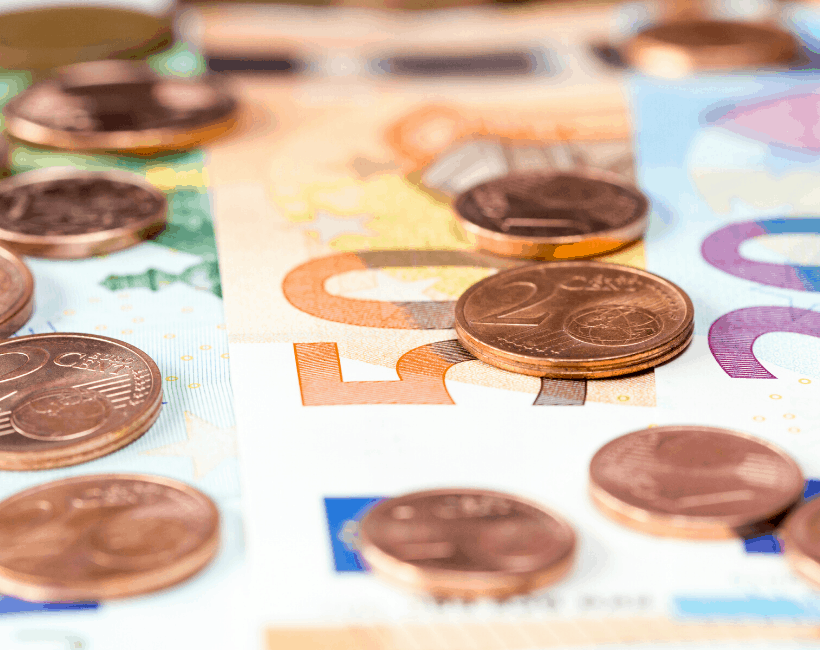

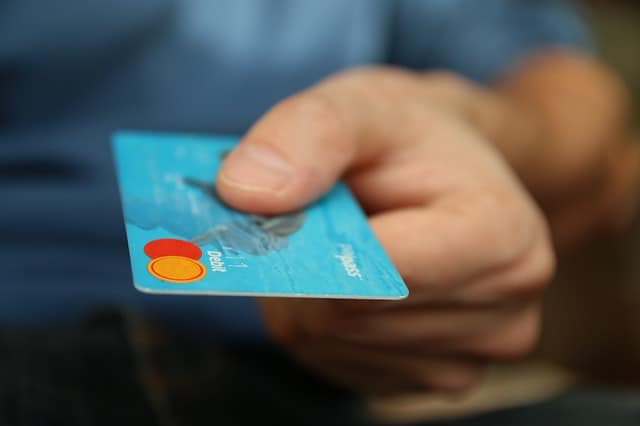
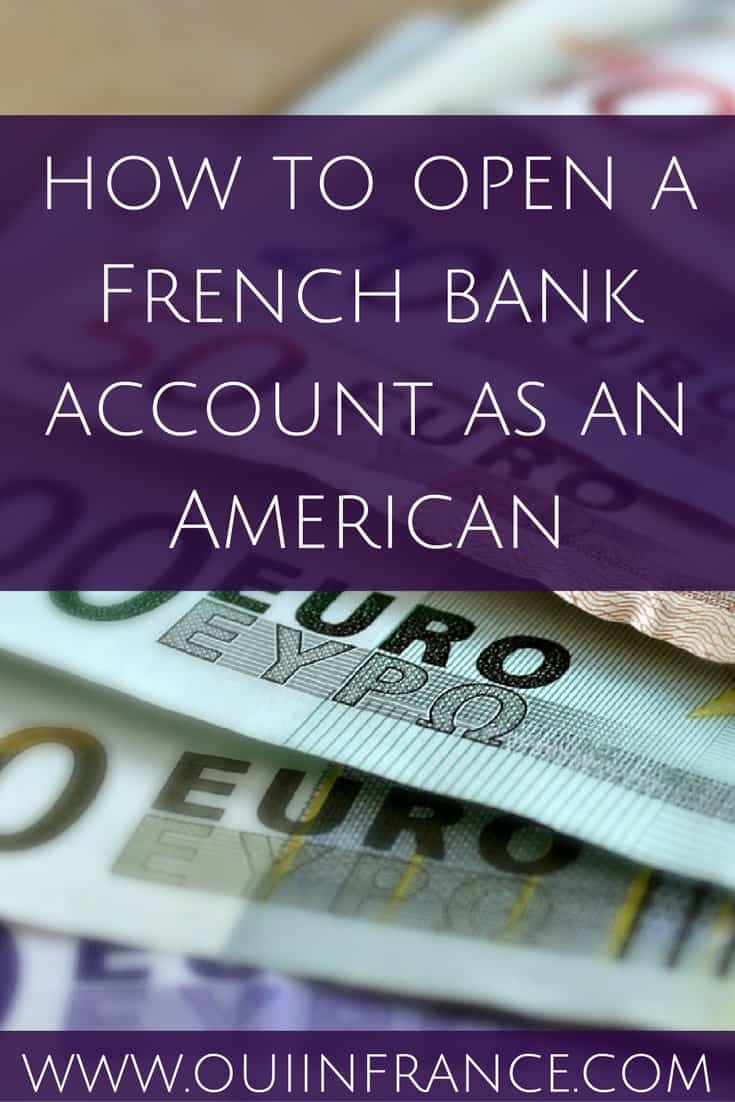

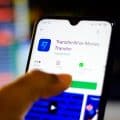
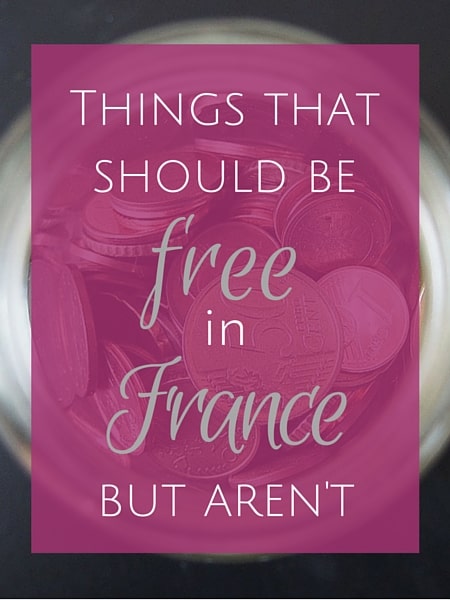
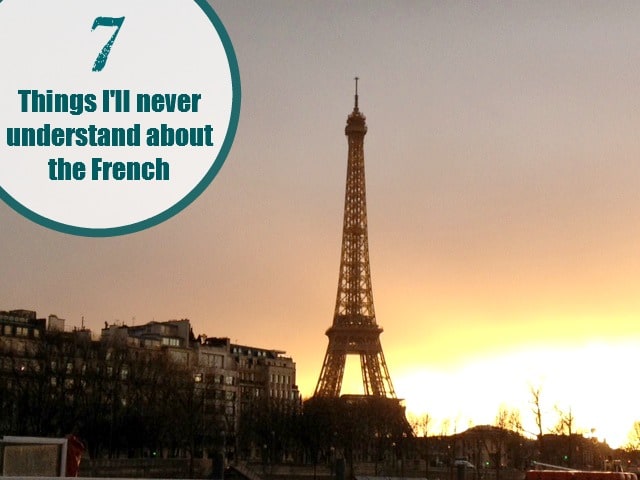

I was infuriated that the bank would put only my husband’s name on the account. I could be on as Mrs. but not with my own surname (I didn’t change my name after getting married). They told me only one name per address. Ridiculous.
Bigger banks are more likely to be able to deal with foreigners and the U.S. FATCA rules. In fact, Americans need to file an FBAR and FATCA form every year if balances go above a certain amount, even if for just one day. There are some nasty stories about the IRS going after people of modest means who didn’t cross their T’s and dot their I’s on these forms (I suppose modest means are easier to go after than rich people who have lawyers and shell companies to hide their assets.)
Also, the reason for the fees is that interest rates are so low. The current rate set by the ECB is 0%. Banks have no way to make money by giving interest on savings that’s a bit less than the ECB rate–right now it would be negative. That translates into fees.
That’s nuts! I wonder why not. Were you then able to go to another bank and get an account opened in your name alone? Seems silly they weren’t able to add your full name — joint accounts are common. But like I realized in my first Welcome To France moment, things that seem normal at home are sometimes impossible here!
I know some Brits who have a bank a/c in France and their French is terrible, so I think that reason was an excuse. You were lucky to have Tom to hold your hand throughout the process.
I don’t pay any banking charges in the UK, unless I go overdrawn and as an ex bank employee I’ve never done this. By the way have you seen What The F*** France! ? There’s a video on French administration, it’ll make you laugh.
It was definitely an excuse and one that just broke me that day. I felt helpless and let down and questioned my decision to come to France. But now I know that’s how things are.
I LOVE Paul Taylor and often share his videos on my FB page. I watch them all. He’s phenomenal!
I just went through the process 2 weeks ago! I bought a vacation home in Burgundy, and I flew to France to set up the bank account. The house was officially mine in September, but I couldn’t get back at that time. Luckily I have a French friend who paid my utilities these past few months, as I couldn’t pay them without a bank account. I also couldn’t get a cell phone at the Orange store without a bank account!
So this trip I took along another friend to act as translator. We went to a couple of banks, but they weren’t too interested. Finally at Credit Agricole we went over my documentation (tricky, because the utilities were now in my friend’s name). I brought EVERYTHING from the States I could think of, including all the house purchasing paperwork. They actually used my passport, social security card, 2 years of tax info, electric bill with the property address and then my purchasing paperwork. They still had to think about it but called my friend back a few days later and told us to come in again and they’d open it up. So, about an hour the first time around, a little longer than an hour the 2nd time. I received my pin # by mail last week, but am still waiting for the checks/bank card (they are sending all this to my house in the US). I hope they show up soon!
Hello name twin! Congrats on your new home — how exciting!! Thank goodness your friend was able to help you out with the utilities and everything requiring a bank account for the time being. It can really be a circus sometimes jumping through all the hoops. You were very smart to bring all the paperwork from the US just in case. Better to be overprepared. Glad it all worked out and that you’ve opened the account. Hope the card and checks come soon! Crossing my fingers for you!
Thank you! I emailed my banker yesterday and the checks/card haven’t even been sent yet!! Ahhhh, France.
Keep in mind that this was just over 30 years ago, but I had moved to Paris to take classes at l’Alliance Française. I opened up a “foreigner’s account at Société Generale – no problem. However, I was hired by a school to teach a conversation class, for which I was paid with a check. The bank went crazy when I tried to deposit it. I couldn’t put francs in my account – only foreign money. I finally got a letter from the school and they agreed to “allow” me to deposit my check. Then I moved and I tried to use another branch closer to my new apartment – no deal. I had to continue using the one near Montparnasse, even though I now lived in the 12th. I didn’t dare close the account there and try to open a new one nearer to me. Good thing that I didn’t because I ended up moving back to the 14th.
Oh wow, luckily they finally gave you permission to deposit your money. What a pain! Glad it all worked out. Thanks for sharing your experience! Are you still in France?
Non, malheureusement. Par contre, je suis prof de FLE aux EU et je voyage de temps en temps avec mes étudiants.
I love your blog, Diane! I’m a Canadian, living in Switzerland and have had very similar experiences. I get to Paris every couple of months and to meet people for casual dating in Paris
G’day
So do most French bank officials speak English with English speakers ? How about a small town in north-west France ? What to expect in terms of conversation ? Merci
Definitely NOT! The French are not known for their foreign language skills, and while some people do speak English well, the majority do not and would not be able to hold down the conversation required to open a bank account for a foreigner (or might not be comfortable doing so because their level is low). Outside of major cities, it’s just dumb luck if someone speaks a functional level of English enough to go over opening a bank account. This goes double for people over 45 or so. Younger people tend to have a better level. Of course there are exceptions, so if you’d rather do everything in English, best to either call ahead and find a bank where someone can work with you or bring an interpreter so everything is 100% clear! Easiest would be to stop in and see if anyone speaks English. Good luck!
Hi Diane !
I just found out your blog, that I find very interesting. I work for a German company, and am very used to travel across the whole EU.
Anyway, I feel like I must apologize in the name of my country for all of the everyday difficulties you guys have to face. It’s such a shame my people can’t speak a proper English. Everywhere I have been in Europe, especially in Northern countries, I’ve never encounter this kind of issue, on the language side. Hopefully, things might change under the reign of our recently elected president, who knows.
With my best wishes ;).
Hi. So, your account is at Credit Agricole. How do you like them? I am looking to change banks and there is a Credit Agricole near my house but I don’t want to just go from one headache to another.
Hi, I think all banks can be hit or miss depending on the branch. One area can have great service and another could be terrible. I haven’t had any issues (knock on wood), but then again I have a low account balance and don’t need any special services from them. I’d ask around in your particular area to see what people are happy with locally. 🙂
The horrible FACTA and america’s imperial overreach was its demise. Sad. Only, the us taxes its slaves (populace) based on their citizentry. They are basically OWNED by the us as simply employees; hence, why america was corporation and never a real country. No employment rights, employment at will (only in the us), etc etc.. Horrible place to “live.”
We don’t live in France but own a home in the Dordogne. We did our first interview with Banque Populaire in a nearby village while we were house shopping. Like yours, that was an hour long interview. (This was before the U.S. changed the reporting requirements). Then, when we finally found a house a year later we went back to the bank, opened the account just before the “closing” on the property. (And by this time the U.S. law had changed.) And we had no problem using both our names. I just have to get used to the fact that my husband’s name is always listed first on every account and document in France. The Notaire who handled our house purchase even asked why I didn’t use my husband’s name!
The bank has been really good – we consult with an English speaker and her boss. We didn’t get a card as I didn’t want to pay the annual fee for only being in France a few months a year. Problem is you really need that card at gas stations and toll booths. Unless someone is in the little booth at gas stations to whom to give cash or American card, we can’t use it as our American credit cards don’t work at the pump. It’s also hit and miss at toll booths. Some take our American card and some don’t (guess it depends on which company owns that toll booth). We tend to carry a lot of cash and the bank has been very good about letting me order a couple thousand in euros at a time and then pick it up a couple of days later.
(We also use the bank for insurance on the house. )
And, yes, we’re idiots as we went over the $10,000 limit by $100 this year. (We’ve been renovating and that takes lots of €€€!)
very hard to open a bank account in paris if you are american as all banks are commited to the FATCHA AGREEMENT, Been trying myself to open a bank account, most likely the only place that will allow it are the french postale bank/office
I’m completely not surprised that a Briton who spoke no French had no trouble opening an account while an American had trouble. The Briton was (then) a EU citizen, so things were easy. In contrast, European banks were reluctant to comply with the FATCA act. Just imagine the reaction in the US if the French government ordered US banks to do certain things on its behalf.
Banks branches used to deal with foreigners, e.g. near research universities or international industry, are likely to be easier.
I have just had a novel(?) experience with my bank. I am 75 years old and live on my own in France. Having just lost my mother at age 106, it crossed my mind that I too am not designed to live for ever. I decided that I should consider arranging for my sister, who does not live in France, to be added as a co-signatory to my bank accounts, in which I have fairly substantial deposits, in the event of accident or my demise.
As my French is very poor as also is my hearing, I emailed the person who handles my account at the bank, requesting her to let me know what requirements need to be fulfilled in order to have my sister added as a co-signatory. To this inquiry I received an electronic response saying that someone at the bank would revert to me within 48 hours. After four days I had heard nothing, so sent another email, this time to the central office address mentioning that I had had no response from their employee to my inquiry, which I repeated in that email.
After another three days I had received no reply to my second email, so I decided to approach another bank. I went to a local branch of the bank with whom my bank in my home country corresponded. I informed the person interviewing me that I was deaf and that it was extremely difficult to understand what was said to me through a Covid-defying mask and that I would need all her advice in writing. She then proceeded to speak at a fast rate explaining what was required. I asked her if she would confirm this by email. She declined to do so, stating that I was not a customer of the bank. I left her office none the wiser.
After a thorough Internet search I discovered nothing helpful, except for your web site that gives me an opportunity to air my frustration in the hope that something positive may come of it.
My inquiry is in respect of a general banking matter subject to legislation that applies to all banks in France. Thus, I am not requesting any bank to divulge their closely-guarded business secrets. Or am I wrong? Are the French generally secretive in any matter?
Hi Terence, I’m so sorry for the frustration. In my experience, that sort of thing doesn’t seem like normal behavior. Adding someone to your account is a very normal thing to do and nothing secretive about it. I wonder if maybe the employee didn’t understand what you were asking and in the confusion, they were dismissive and unable to help. Your local branch should be able to do that without any issue. I’m sorry again for the hassle!
This may sound like a dumb question, but with all the hassles of regular bank accounts, why not just open up an internet bank account. You had mentioned, TransferWise. Is there something these types of accounts cannot do that regular banks can ?
Wouldn’t they send you the card that could be used at gas stations, tolls and also allow pay deposits, by property, etc?
A concern for US persons are “bankers” (Anglophones) who appear to deal ‘exclusively’ with Americans/non-EU residents. Many are clueless as to PFICs rules, and think a US person can place monies in an interest-bearing accounts, own a part of the “foreign” bank-shares, mutual funds, insurance, etc.. If one does this, that person can be subject to PFIC -another part of the US empire’s regime and great disdain towards US persons who leave the empire. You are to buy American, marry American, and eat American.